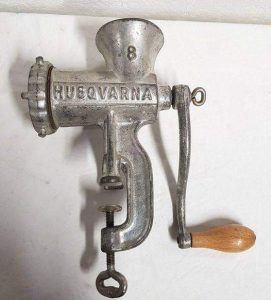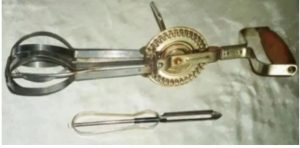The Fascinating Journey of the Kitchen Mixer
Have you ever stopped to think about how the trusty kitchen tool, the mixer, came to be? Let’s take a trip back in time and uncover the intriguing history behind this essential appliance.

The Early Days of Mixing
In the mid-19th century, innovation struck the kitchen when Baltimore tinner Ralph Collier patented the first mixer with rotating parts in 1856. Shortly after, E.P. Griffith’s whisk was patented in England in 1857. The Monroe brothers, J.F. and E.P., also left their mark with their hand-turned rotary egg beater, which was patented in the US in 1859. These early designs caught the attention of the Dover Stamping Company, which acquired the Monroe brothers’ patent. The Dover egg beaters became a beloved American brand, often referred to as the “Dover beater.” In fact, back in February 1929, a recipe from the Gazette newspaper of Cedar Rapids, IA, even featured the famous Dover beater in a delightful dessert recipe called “Hur-Mon Bavarian Cream.”






